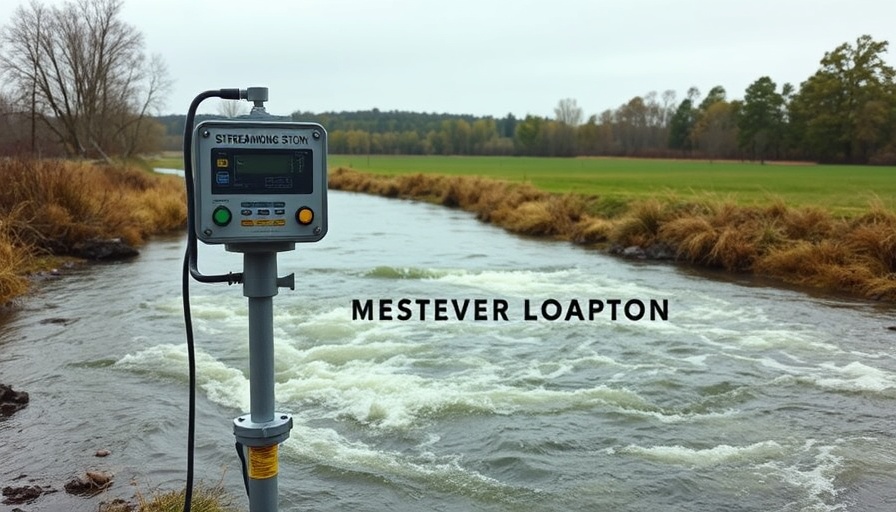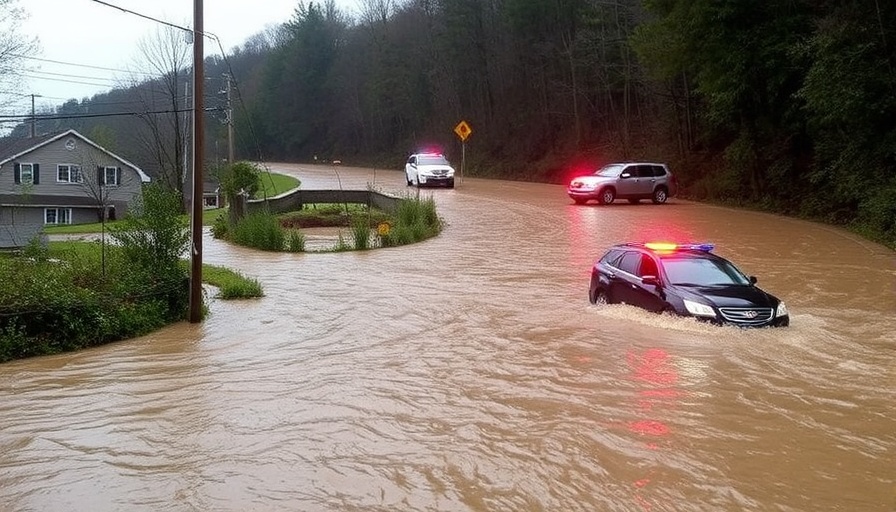
Critical Services at Risk: Understanding USGS Closures
In a concerning move, the Trump administration has effectively shuttered 25 United States Geological Service (USGS) centers across the country, primarily impacting those responsible for monitoring drought and flooding conditions. These closures are not simply bureaucratic decisions; they pose real dangers to communities reliant on accurate water data for disaster preparedness and management.
The Lifeline of Water Quality Monitoring
The USGS centers play a vital role in tracking water quality and levels. This monitoring is essential for managing the delicate balance of water resources, particularly in regions prone to flooding or drought. The data collected enables communities to prepare for potential disasters by issuing early warnings about flood risks, helping to avert catastrophic losses. With the centers’ closure, the question looms large: what happens to these critical functions?
The Unforeseen Consequences of Budget Cuts
There seems to be a lack of foresight regarding the implications of these closures. As noted by Kyla Bennett, a science policy director, the motivation appears to stem from the ease of eliminating programs rather than a careful consideration of public welfare. This has raised concerns among scientists and community members about the long-term effects on water safety and availability.
A Community Perspective: Voices of Concern
Community members and former employees of the USGS centers express deep unease about the future. Many voiced the sentiment that monitoring bodies—often overlooked—are integral to ensuring safe water access and disaster preparedness. The Charlotte center, for instance, has been crucial in dealing with the aftermath of devastating floods. Losing such facilities jeopardizes not only the public's safety but also the economic health of communities reliant on these water resources.
What Happens Without Monitoring?
The most alarming aspect is the ambiguity surrounding the closure's aftermath. With no clear plan to replace the monitoring and data services provided by USGS centers, the potential for ecological and human health crises significantly increases. Lack of oversight means that aquifers could be dangerously depleted, risking water supplies and stability. Experts warn that communities could face severe challenges without accurate information regarding their local water resources.
Call to Action: Advocate for Resource Protection
As concerns grow regarding these cuts, it's vital for those in affected communities to voice their worries. Engaging with local representatives, advocating for water sustainability, and emphasizing the importance of USGS monitoring can drive attention to this critical issue. In a world increasingly impacted by climate change, safeguarding our water resources should be a priority for every homeowner and community member.
In conclusion, the decision to close these USGS centers raises significant concerns about water safety, community resilience, and environmental stability. For homebuyers, sellers, and property investors in areas affected, staying informed and active is essential as these developments unfold. Don't underestimate the power of advocacy—your voice can help bring about needed change!
 Add Row
Add Row  Add
Add 





 Add Row
Add Row  Add
Add 








Write A Comment